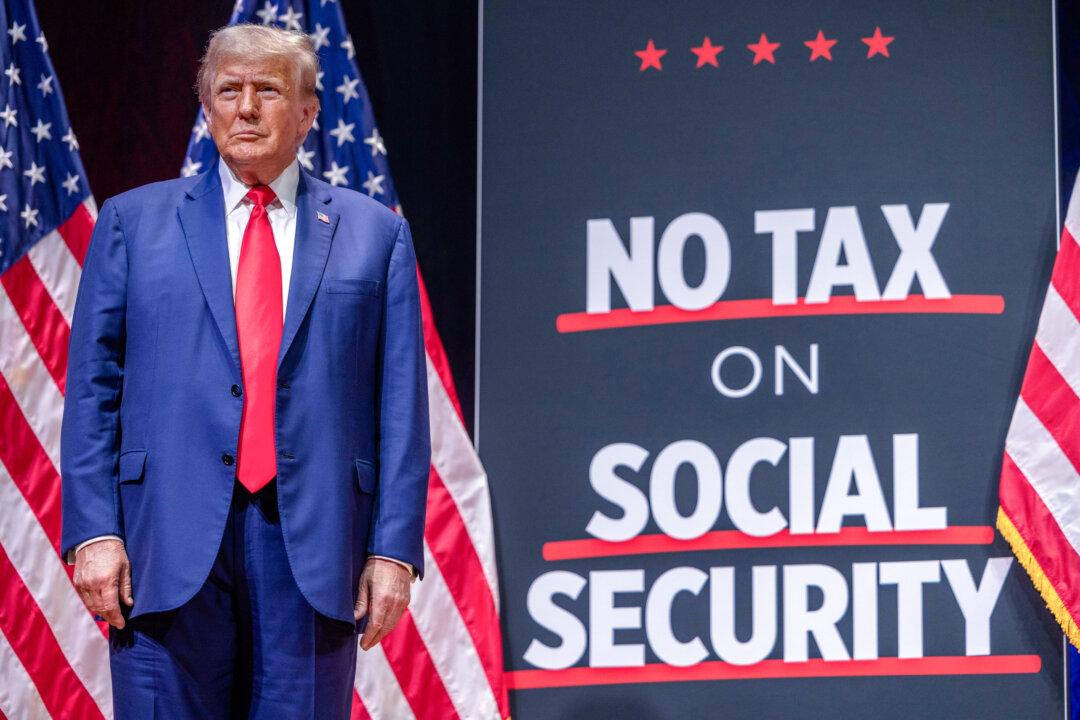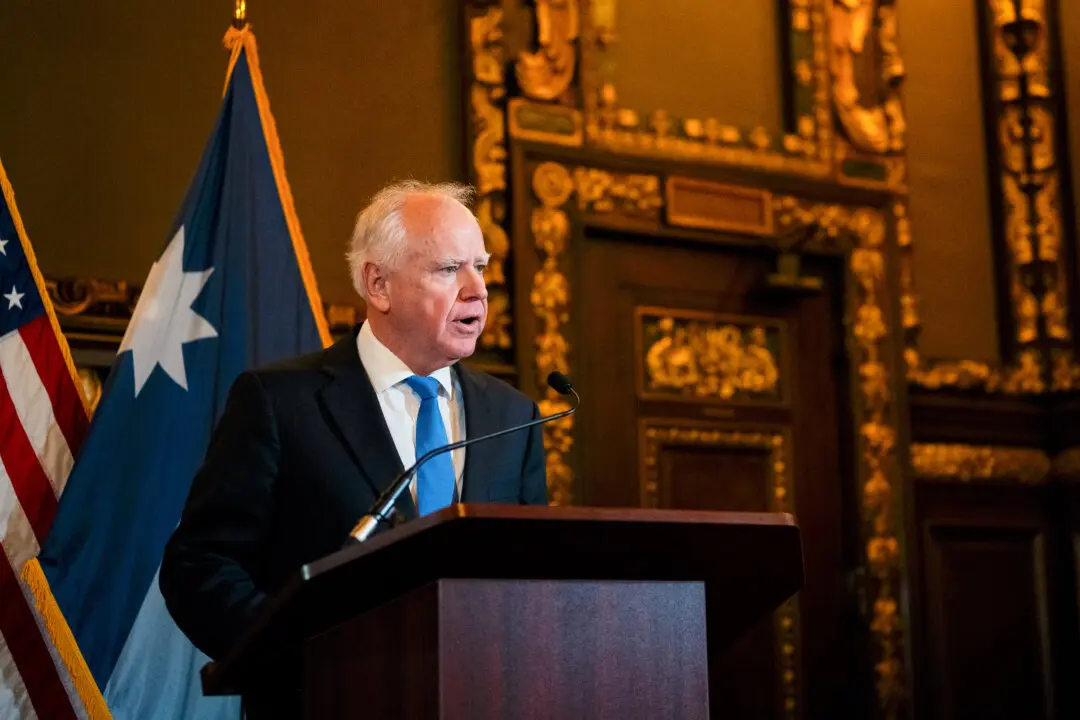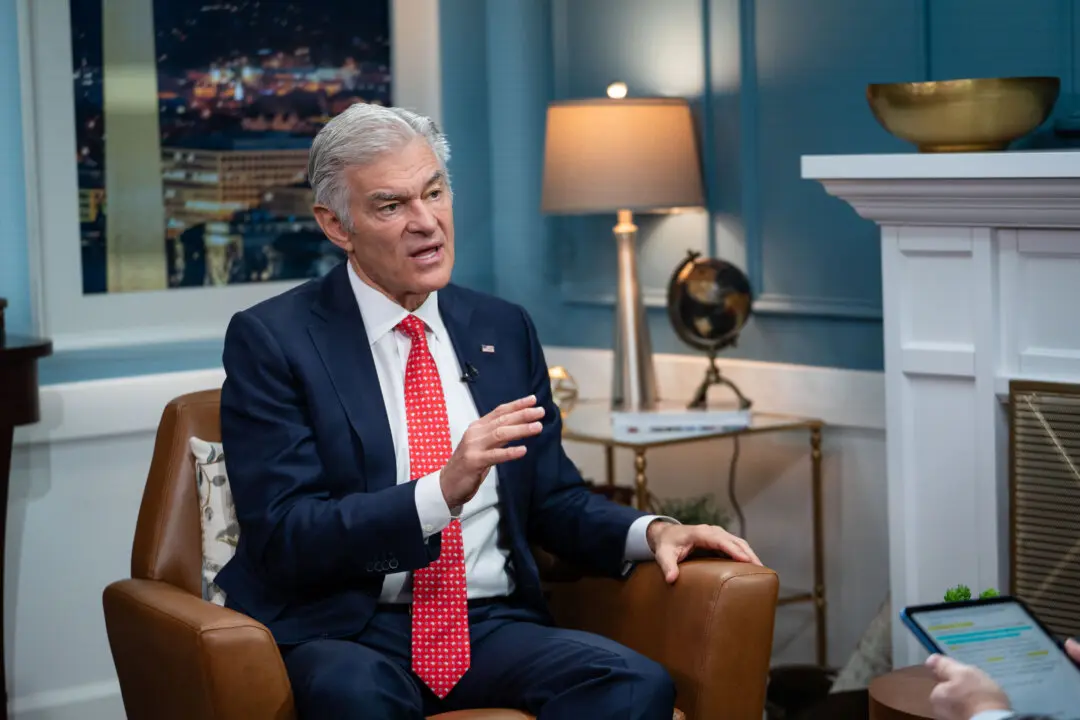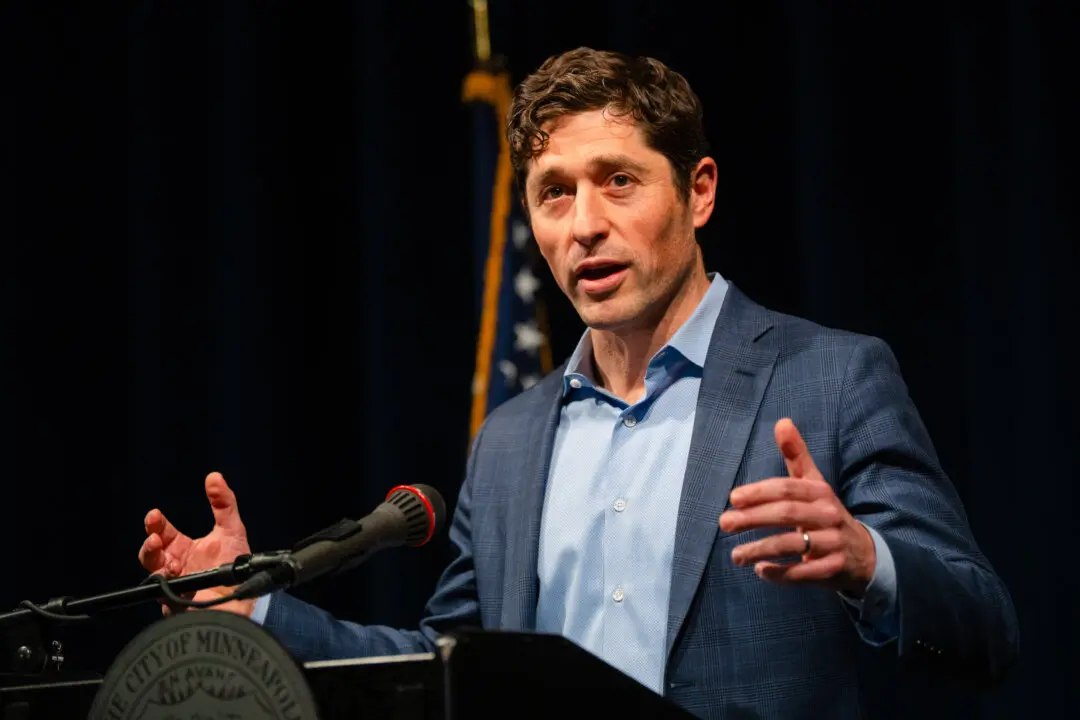BYRON CENTER, Mich.—In separate speeches on Aug. 14, former President Donald Trump and his running mate, Sen. JD Vance (R-Ohio), shed more light on their plans for remedying the “affordability crisis” they say is plaguing America.
At a rally in Asheville, North Carolina, Trump announced a specific goal. He pledged that if he wins reelection, energy costs will be reduced by at least 50 percent within the first 12 to 18 months of his new term.






